Wing and a prayer: The chaplains supporting sports stars
- Published
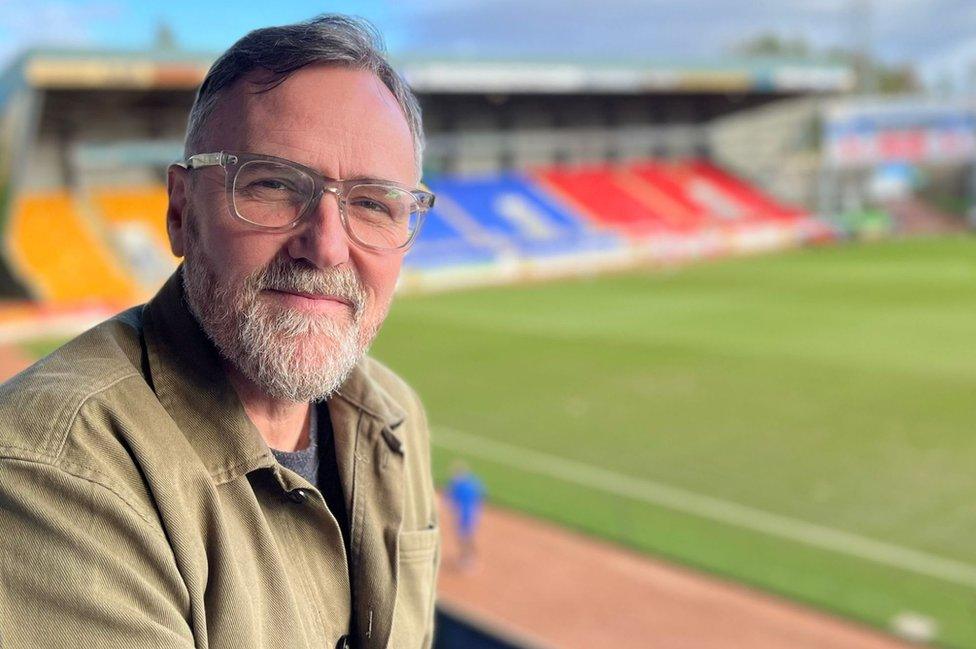
David Barrie is a friendly face and a listening ear to the staff and players at St Johnstone football Club
David Barrie is a well-known face at St Johnstone football club.
But although he can be found pitchside or around the locker rooms, he's not a player or a coach.
He's the club chaplain.
Rev Barrie is one of a growing number of sports chaplains delivering pastoral support to players and officials.
"My role is very much in the background, behind-the-scenes, whether it be with players, family members or staff members," he said.
"I will be there and I will be a listening ear."
Rev Barrie is the pastor of Pitlochry Baptist church but on Fridays he spends time around McDiarmid Park speaking and listening to anyone connected to the club.
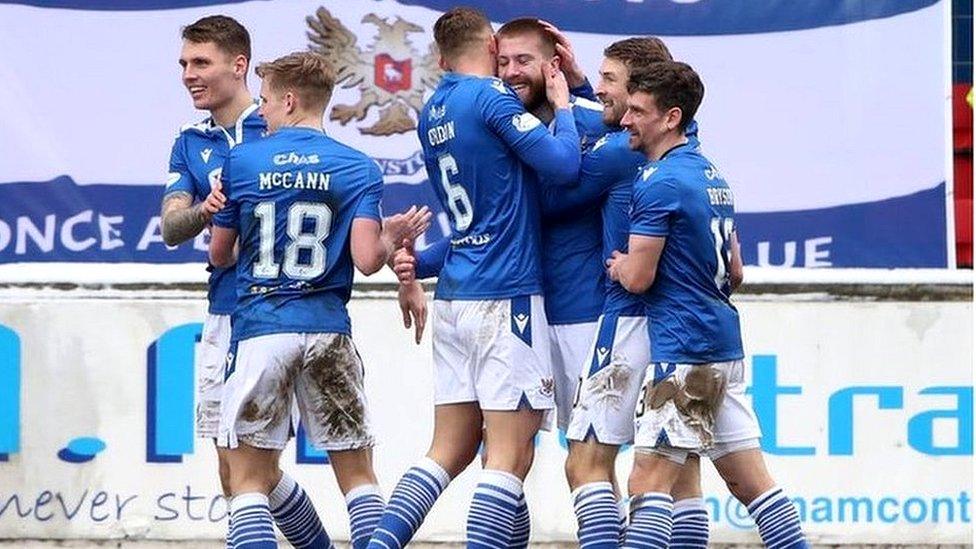
David Barrie believes his role supports the mental health of his club's players
"Because they are football players or because I'm in a football environment doesn't make it any different from my role, in some respects, as a minister in Highland Perthshire," he said.
He believes it is "crucially important to have someone in the role I'm in, who is not paid by the club, who is a fan of them more than a fan of the club as well. That's very important."
Sports chaplains are growing in popularity. They were almost unheard of 25 years ago. Today there are more than 160 and the number is growing.
Mark Fleming is the National Director for Sports Chaplaincy Scotland. His primary role is to source, train, appoint and oversee chaplains at a range of sports clubs.
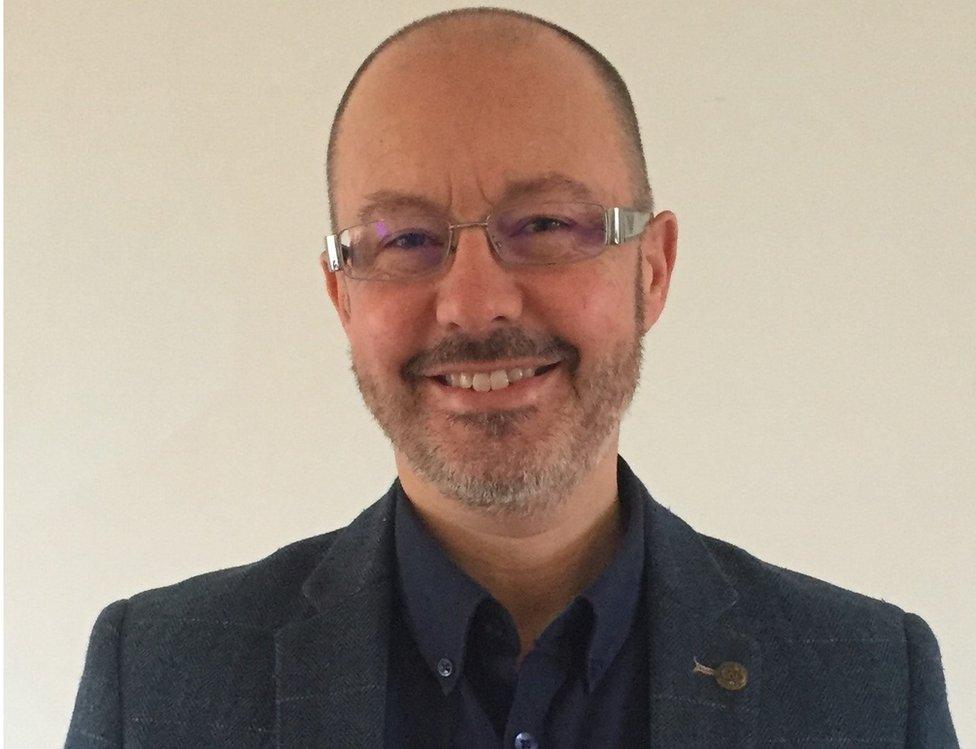
Mark Fleming trains chaplains to look after their sporty flock
The vast majority of chaplains - 140 - are in football but there are also more than 20 other chaplains in shinty, rugby, golf, basketball and cycling.
"It's not primarily a religious role. It's more around giving pastoral support. Especially in the areas of mental, emotional and spiritual well-being," said Mr Fleming.
'Hairdryer treatment'
He thinks managers in particular are recognising that if the player is happy, if life outside football is stable and secure, then that can create a better opportunity for good performance on the pitch.
He said the so-called "hairdryer treatment" - where managers shout at players angrily in the dressing room or on the pitch - is not quite so effective these days.
"I think managers recognise that that you will get more out of a player by building them up than by tearing them down. And this is where chaplaincy fits in because that's our whole thing," he said.
"Building people up, encouraging them, being a positive influence, a support, win, lose or draw."
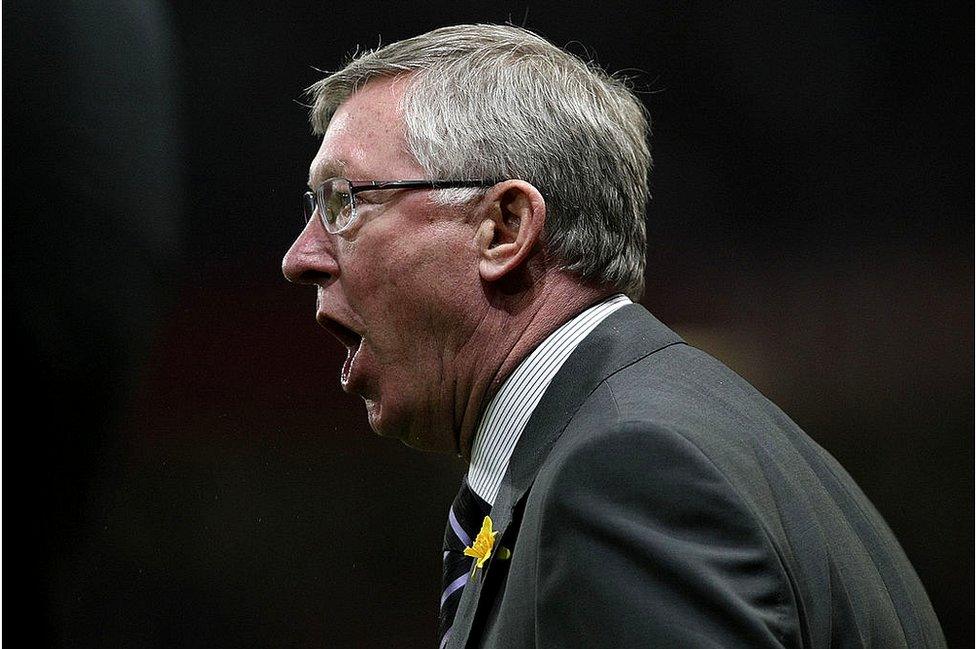
Sir Alex Ferguson was famously feared by players for his "hairdryer treatment"
And it's not just in men's football. Jennifer Marsella is the female chaplain for the Motherwell FC women's team.
She thinks the players' mental health is a big issue in women's football.
Motherwell players are often juggling full-time jobs, university courses and family life along with playing three nights during the week and then on Sunday.
She describes being a chaplain as "basically really about being a big listening ear, encouraging them and supporting them.
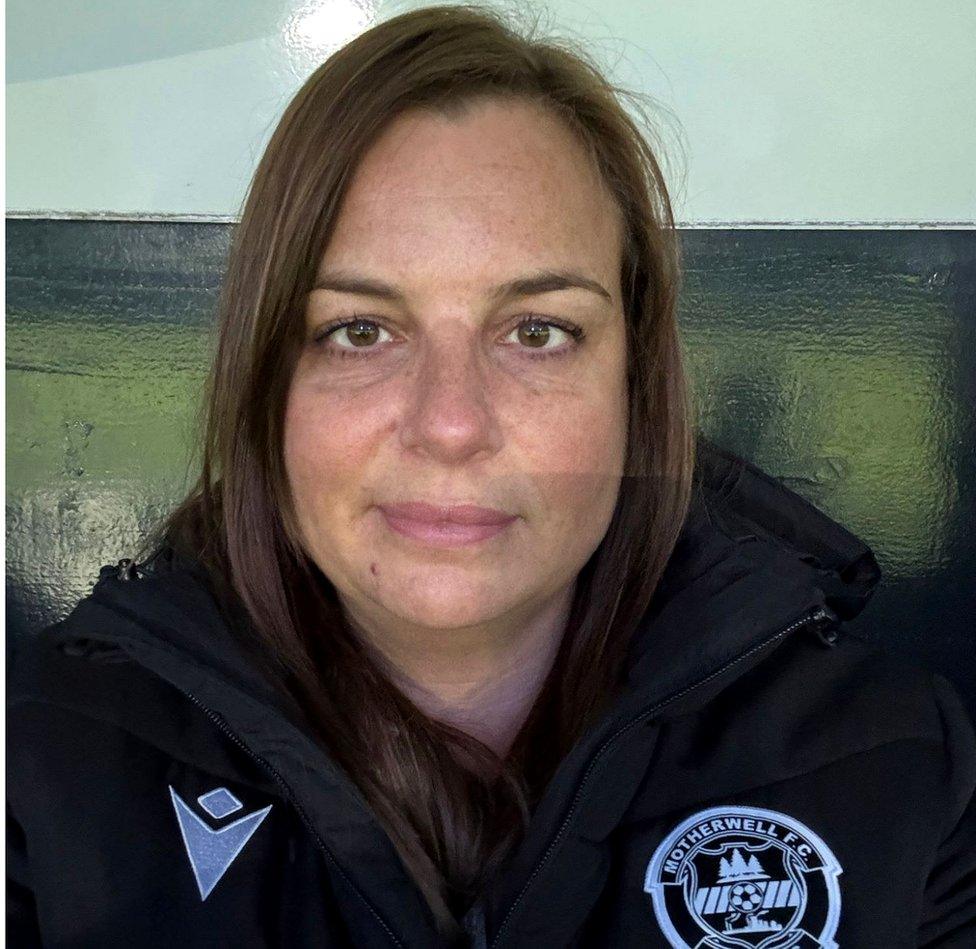
"They would tend to share things with you that they might not share with anyone else which, from my point of view, is wonderful because you get to help them."
And so too in rugby as Ben Thorpe, the chaplain of Stirling County Rugby Football Club, outlines.
"A chaplain looks past the player and they see the person," and he stresses chaplains have no agendas. "It's for all faiths and none.
We all are people who just need somebody to talk to."
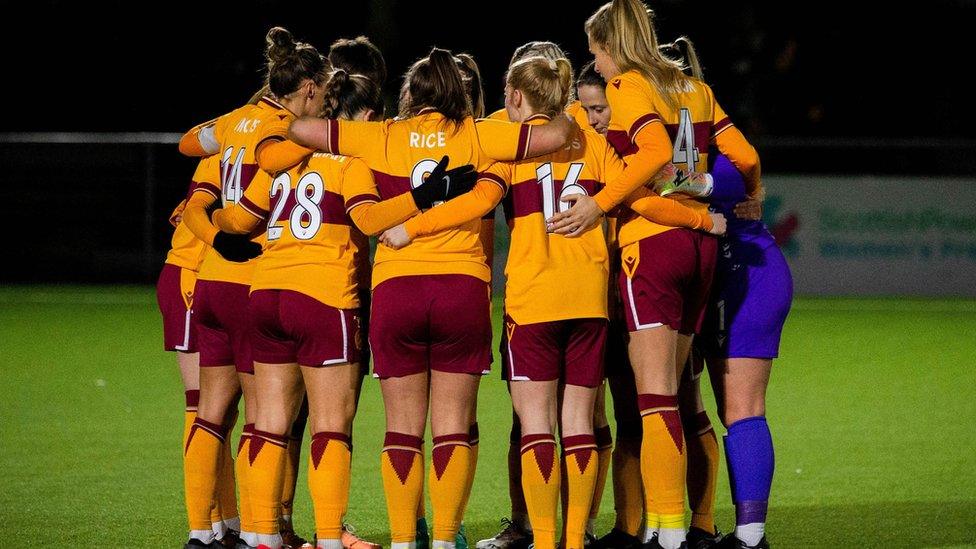
Stephen Allison is well aware of the importance of listening.
He's a minister in the Free Church of Scotland at Kiltarlity Free Church and chaplain of Lovat Shinty Club which is based in Kiltarlity.
"We're very aware in the Highlands particularly about issues around young men and suicide and that has tragically affected shinty," he said.
He said the world governing body - the Camanachd Association - had embraced chaplaincy.
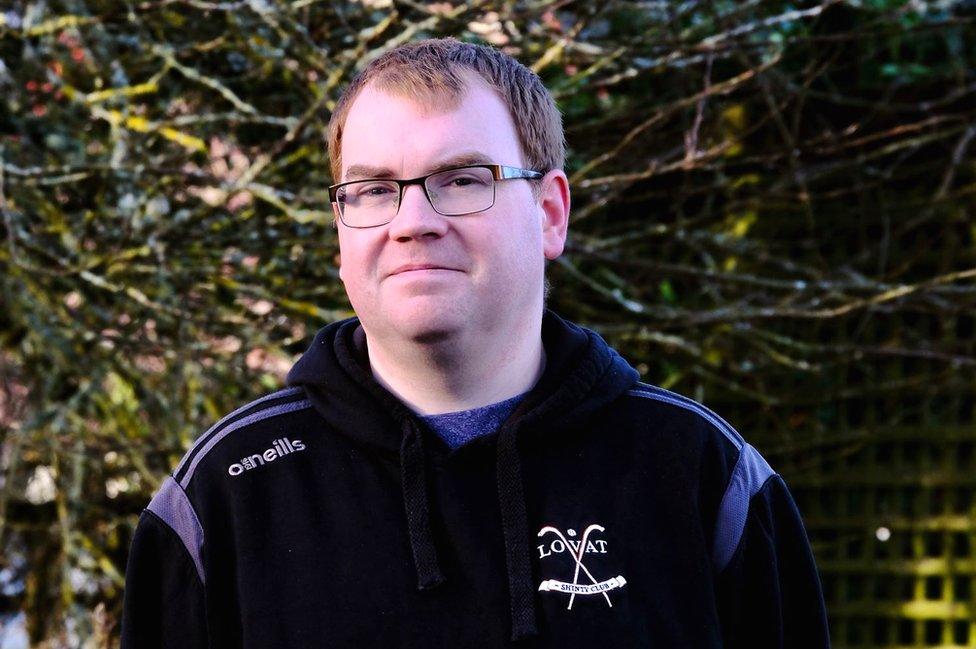
Stephen Allison is aware of the issues around young men and suicide which has sadly affected the world of shinty
"They saw and heard of the benefits of it in other sports like football," he added.
Mark Fleming said that whatever the sport, the chaplain will always be an enthusiastic and sympathetic supporter.
"You maybe supported a player through a really difficult situation like a bereavement or a mental health struggle or a gambling problem and you've managed to walk them through that and you see them in a much better place," he explains.
"All I want is for players to flourish, enjoy what they're doing and if we can play a small part in that then job done. That's what it's about."